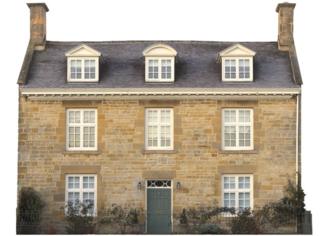The Lifetime Isa: Free money – or just too complicated? – BBC News

 Image copyright Thinkstock
Image copyright Thinkstock It looks like free money. An absolute no brainer, even.
But while the Treasury confirmed this week that the Lifetime Individual Savings Account (Lisa) will go ahead in April, others were raising doubts about the whole idea.
The Nationwide announced it will be boycotting the product, claiming that it is too complicated.
Standard Life has already said it will not be offering a Lifetime Isa.
Nevertheless one other provider – Hargreaves Lansdown – announced it will be launching a Lisa in April 2017.
That will give some savers the chance to earn up to 32,000 in government bonuses.
But critics are warning not just that the product is complex, but that it could leave some investors worse off.
And should you want your money back at any stage, you could pay dearly.
What is a Lifetime Isa?
 Image copyright Thinkstock
Image copyright Thinkstock It is a savings product, designed to help people at two different points in their lifetime:
- When they want to buy their first house or flat
or
- When they want to retire
Savers can only open a Lisa if they are between the ages of 18 and 40. They can pay in up to 4,000 a year, but no more. At the end of each year, the government will add a 25% bonus, ie up to 1,000. Since you can continue paying into a Lisa up until the age of 50, the potential eventual bonus is up to 32,000.
For most people, this is more generous than the Help to Buy Isa (see below).
How is the money invested?
As with ordinary Individual Savings Accounts (Isas), the money can be invested as cash – or in stocks and shares.
Cash Lisas are expected to pay out the same as Isas. Currently the best instant access rates are around 1% a year.
Such returns are in addition to the government bonus.
Alternatively the money can be invested in stocks and shares, which have potentially higher returns, but which carry greater risk too.
All gains are free of income and capital gains tax.
What are the rules if you want to buy a home?
 Image copyright Thinkstock
Image copyright Thinkstock The money can only be used without penalty if you are a first-time buyer. In other words, you cannot have owned a property before.
The property cannot cost more than 450,000. This is more generous than the Help to Buy Isa, which is limited to 250,000 outside London, but 450,000 in the capital.
Two partners can each use their own Lisas to buy a house together, potentially doubling the government contribution.
A home bought through a Lisa cannot normally be rented out.
What if you want to use the money when you retire?
Once you are over the age of 60, you can withdraw money from a Lisa and use it for whatever you like.
In addition to being used by first-time buyers, it is therefore an alternative to a pension.
A pension is tax free when you pay into it – so the taxman contributes an extra 25% to the amount paid in by basic rate taxpayers – but money taken out after the age of 55 is taxable.
A Lisa is the exact reverse: you will have already paid tax on contributions into it, but money taken out will be tax-free.
 Image copyright Thinkstock
Image copyright Thinkstock Could I use a Lisa instead of a pension?
Most experts urge real caution here.
Anyone who is paying into a workplace pension can expect contributions to be made by an employer, which are likely to be more valuable than the annual Lisa bonus.
The exceptions to this might include:
- Those not paying in to a workplace pension – such as self-employed people, or non-working parents
- Those who have secured the maximum employer contribution on their workplace pension, and want to save more
- Those who are up to their lifetime, or annual limit, on pension contributions
“In most other situations, a pension will make more sense,” says Tom McPhail, retirement specialist with Hargreaves Lansdown.
“This is particularly relevant for anyone who can join a workplace pension and benefit from employer contributions.”
Remember too that money can be taken out of a pension at age 55, but not from a Lisa until the age of 60.
 Image copyright Thinkstock
Image copyright Thinkstock What if I need the money sooner?
You can only withdraw money penalty-free if you are buying your first home, you are over 60, or if you have a terminal illness.
All other withdrawals will incur an apparently hefty 25% exit charge.
This breaks down as 20% to recover the bonus, plus an additional 5%. That 5% is partly to make up for the investment growth on the bonus itself.
Nevertheless one investment firm has calculated that the charge could mean an investor losing around 45% of the growth in the value of the Lisa, assuming he or she had it for 10 years, and it were to grow by 4% a year.
“It is disappointing to see the government pushing ahead with an exit fee that looks overly punitive if people unexpectedly need access to their savings,” said Tom Selby, an analyst with AJ Bell.
The company wants the Treasury to re-think the charge.
| The ISA family | |
|---|---|
| Individual Savings Account (Isa) | Simple tax-free savings account. Up to 15,240 can be invested in cash or stocks and shares. Limit rises to 20,000 in April 2017. |
| Junior Isa | Similar to Isa, but for under 18s. Anyone – eg grandparents – can pay into it. Maximum yearly contribution: 4,080 |
| Help to Buy Isa | Anyone over 16 can invest. Government adds 25% bonus, to a max of 3000, for those buying a first home. |
| Lifetime Isa (Lisa) | For those aged 18 – 40. Government adds 25% bonus each year, up to max of 32,000. Can be used for buying a first home, or for retirement. |
| Innovative Finance Isa | Money gets invested in peer-to-peer lending. Returns are better than cash Isas, but money is at risk. |
Help to Buy Isa, or Lifetime Isa?
Both products pay a 25% bonus if you are buying a house for the first time. But if you plan to save for more than five years, or if you can afford to put more than 2,400 a year in to the plan, a Lisa will typically be more generous.
Here’s why:
- You can put more money into a Lisa (4,000 a year, v, 2,400 a year into a HTB Isa, plus 1,200 when it is opened)
- The Lisa pays a bonus at the end of each year. The HTB bonus is only added when you buy a house. So the Lisa will benefit from annual compound interest, boosting savings.
- The maximum bonus for a Lisa is 32,000, v 3,000 for a HTB Isa.
- Lisas can be used to buy a property up to 450,000 anywhere in the UK. Outside London, HTB Isas are limited to homes worth less than 250,000.
HTB Isas can only be opened up to 30 November 2019.
 Image copyright Thinkstock
Image copyright Thinkstock Can I save into both?
Yes, you can save into a Help to Buy Isa and a Lisa at the same time, subject to the annual limits. But you can only use the bonus from one to buy a property.
If you use the HTB bonus, you would then be subject to a 25% exit penalty on the Lisa, even if you use those funds to buy a home.
If you use the Lisa to buy a home, you won’t get the 25% bonus on the HTB Isa.
So it will make sense for many people to transfer funds from a HTB Isa into a Lisa from April 2017.
From that date, the total amount you will be allowed to save in all Isas will be 20,000 a year.
One other warning: because Lifetime Isas are savings accounts, money in them can affect your entitlement to benefit payments.
Read more: http://www.bbc.co.uk/news/business-37318001